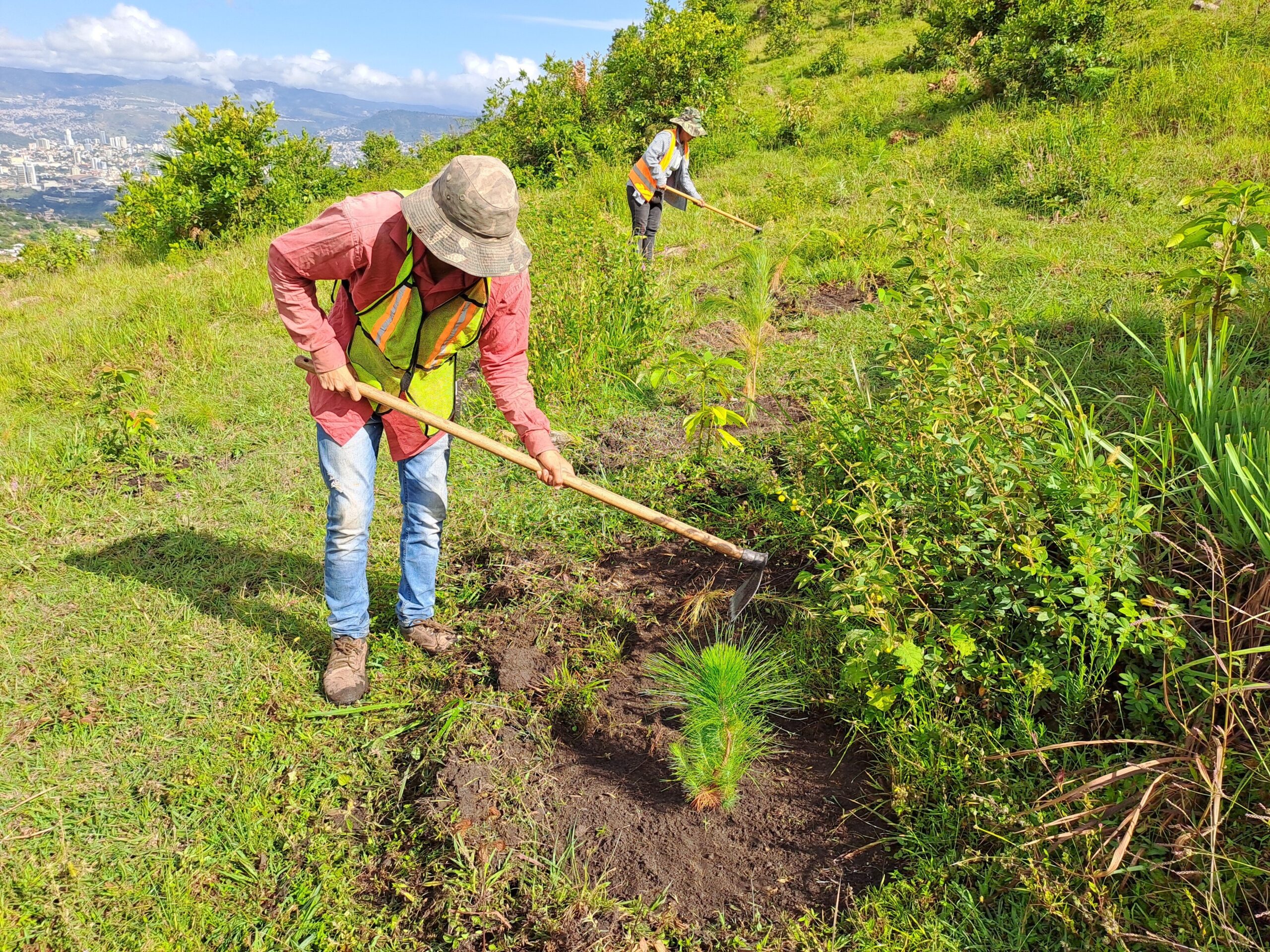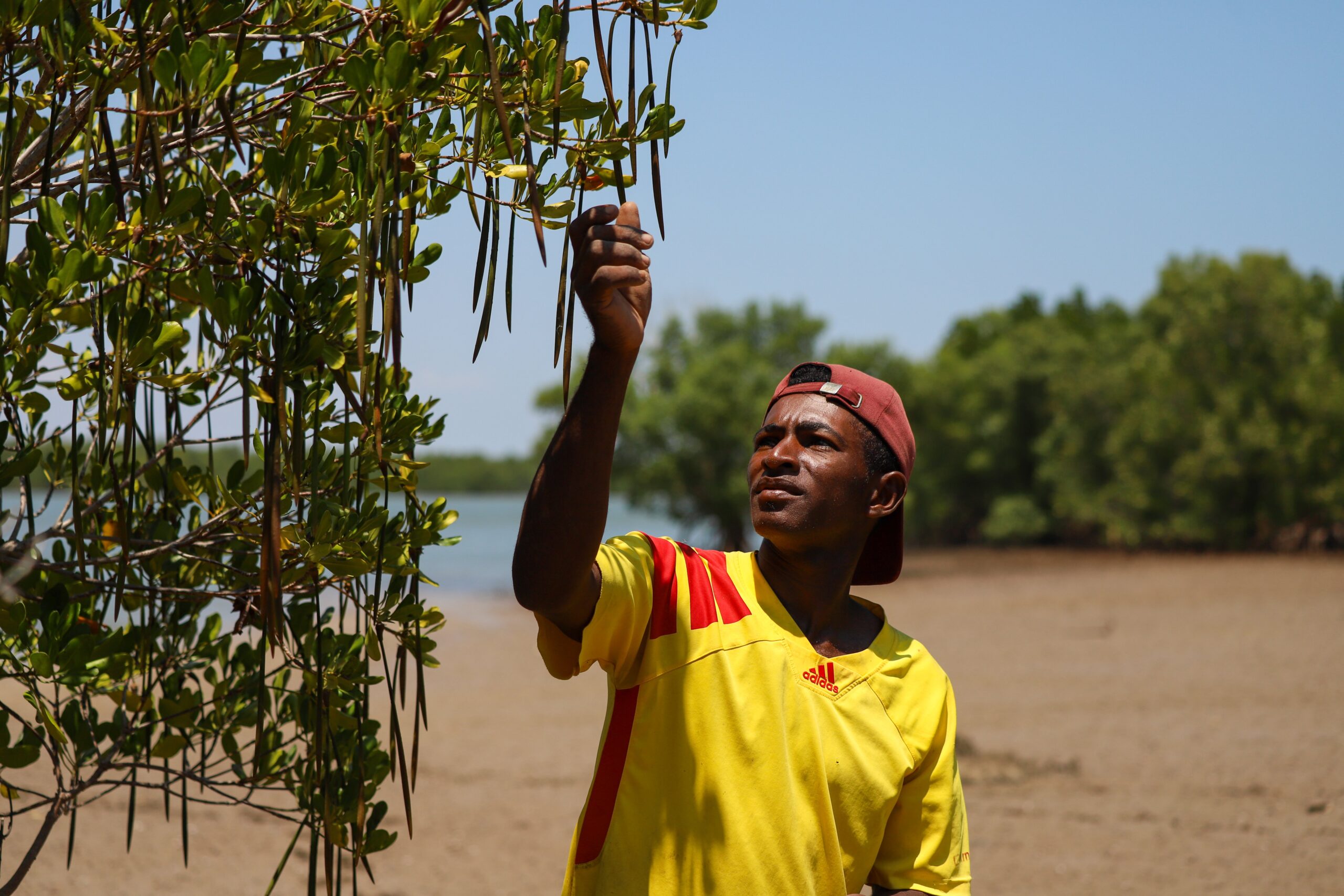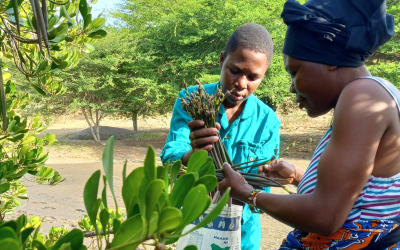
Landscape restoration is a crucial response to global challenges, effectively working to mitigate ecosystem degradation to foster community and ecological resilience.

Why Not Just Plant Trees?
Tree planting has quickly become the global standard for individuals and businesses to help combat climate change, and these efforts have had an undeniably positive impact upon communities and global ecosystems. However, while this remains a vital part of Eden’s landscape restoration strategy, tree planting alone does not reduce long-term poverty or adequately address the acute effects of climate change.
After 18+ years of large-scale tree planting, we have learned that focusing on meeting big targets and planting a high volume of trees can sometimes come at the expense of quality site planning and species selection. Focusing on trees planted alone also fails to address the primary drivers of deforestation, leaving reforestation projects vulnerable to future degradation. While not all our projects had challenges, the lessons learned from those that did, combined with Eden’s nearly two decades of practical experience, have guided us toward providing more comprehensive and impactful environmental solutions. By shifting our focus from tree planting to Landscape Restoration, Eden has adopted a holistic and inclusive approach to project design, planning, and implementation based on the context of the entire landscape and its interconnected relationship with communities. This shift aligns with the industry as a whole, where we are seeing an evolution in approach across the board, one focused on long-term, sustainable impact instead of inputs.
How We’re Expanding Our Environmental Impact
Our strategy moves beyond traditional tree planting by embracing a multifaceted landscape restoration approach. This approach delivers tangible benefits to surrounding communities, strengthens biodiversity and ecosystem services, and contributes to long-term positive impacts that combat climate change. By working with communities to identify the drivers of historical deforestation and environmental degradation, then collaborating with stakeholders and partners to resolve regionally specific obstacles, we design projects that bring lasting transformation.
Through these collaborative efforts, our targeted landscape restoration projects look beyond the scope of tree cover, and focus on restoring critically important ecological functions, such as:
- Increased Biodiversity – Biodiversity enriches the natural world and bolsters ecosystem resilience, allowing it to adapt to fluctuating environmental factors, including those caused by climate change.
- Improved Soil Health – Healthy soils are crucial for plant growth and water filtration, and as a carbon sink, they play a vital role in mitigating climate change.
- Sustainable Water Conservation – The rehabilitation of natural water systems helps maintain the hydrological cycle, ensuring the availability of clean water in the face of changing climates.
This comprehensive approach to landscape restoration generates more environmental and social impact than traditional tree planting alone, allowing us to get at the root cause of environmental degradation, and set landscapes on a truly sustainable path.
Strengthening the Interconnected Relationship Between People and the Planet
In recognizing the profound connection between climate change, biodiversity loss, food security, poverty, and landscape degradation, our landscape restoration approach is inspired by the ‘4 Returns framework’. This innovative strategy acknowledges and addresses the intricate relationship between community well-being and environmental health, recognizing that both must be strong and resilient to thrive. It builds up social connections, supports professional and educational development, and guarantees long-term reliable income for communities through the restoration of landscapes and their ecological functionality.
Environmental Restoration efforts also provide people with opportunities to gain valuable skills and knowledge, expanding their ability to pursue sustainable livelihoods. This in turn enhances socioeconomic conditions, reducing dependence on unsustainable management of their natural resources. This level of environmental stewardship enhances community social connectivity via networks of support and knowledge exchange, thereby building social resilience and closely linking community well-being with the health of the ecosystem.
Restoring Our World: Join the Collective Effort
Landscape restoration is one of the most effective solutions to combat climate change and its impacts. As we navigate the third year of the UN Decade of Ecosystem Restoration, it’s clear that while we’ve made progress, there is a lot more work to be done. While Eden is doing its part to restore landscapes on a large scale, we cannot do this alone. A collective effort is essential to restore and conserve vital ecosystems, enhancing community and environmental resilience. Working alongside local communities, we can instill hope, boost biodiversity, and create real economic benefits. Your support for Eden’s projects directly contributes to making a global impact and propelling the restoration movement forward.
While tree planting will remain an essential input to our holistic landscape restoration approach, by going beyond planting trees, we are facilitating ecological restoration and prioritizing community development, supporting the resilience of both people and the planet long-term. Your contribution helps empower communities, combat climate change, and preserve natural habitats to foster a harmonious coexistence with nature. Every contribution is crucial in our shared vision to reverse environmental degradation and ensure a thriving world for all.
[Call to Action was present in original content]



